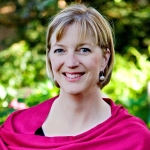
Linda Essig
A Humane Framework for Creative Practice
Posted by Jul 24, 2017

Linda Essig
Aesthetic Perspectives is described as “a guide for description rather than a scorecard.” This is an apt explanation; it provides a framework for use by an evaluator rather than a rubric for evaluation itself. As such, there are aspects of Aesthetic Perspectives that are particularly useful or important and a few elements that raise some questions for me.
Read More









